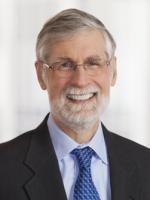Even a misdemeanor guilty plea can have far reaching ramifications in the healthcare industry. The Sixth Circuit recently upheld a decision of the Department of Health and Human Services (HHS) that a healthcare provider was subject to mandatory exclusion following a guilty plea to misdemeanor misbranding. As the court recognized, trial counsel had anticipated this possibility and warned the provider about potential exclusion.
Pharmacist Parrino consistently filled prescriptions for Pulmicort with a less potent amount of budesonide. He resolved the investigation by pleading guilty to introducing misbranded drugs into interstate commerce in violation of 21 U.S.C. §§ 331(a) and 352(a). Because misdemeanor misbranding is a strict liability crime, Parrino did not need to admit that he intended to prepare the medications incorrectly as part of the plea. HHS nevertheless decided its mandatory exclusion authority applied, excluded Parrino from federal healthcare programs for five years, and effectively ruined Parrino’s livelihood as a pharmacist during that time. Parrino appealed the decision by claiming that permissive (rather than mandatory) exclusion authority applied to misbranding. He also argued that HHS violated his fundamental right to property by acting arbitrarily when it excluded him for a strict liability offense that lacked intentional misconduct.
Disagreeing with a decision from the Fourth Circuit, the Sixth Circuit agreed with the Ninth, Tenth, and First Circuits that a healthcare provider has no “fundamental right to participate in federal health care programs.” The court reasoned that no property right is created when someone is allowed to become a provider to federal healthcare programs because the government makes “no clear promises” of entitlement to the provider and federal health care programs are not intended to benefit providers. Deciding that the type of exclusion was not crucial, the court held that HHS needed only a rational basis to justify excluding the pharmacist. Under this standard of review, the court readily upheld the rationality of excluding a pharmacist who filled sub-potent medications and wasted government funds.
In an instructive footnote, the court referred to Parrino’s attempt to withdraw his guilty plea based a claim of ineffective assistance of counsel when he learned that HHS planned to exclude him. On that issue, the court held that counsel was effective by providing sufficient notice of the possibility of exclusion, even though counsel predicted exclusion would considered under the permissive standard rather than the mandatory standard.




 />i
/>i

